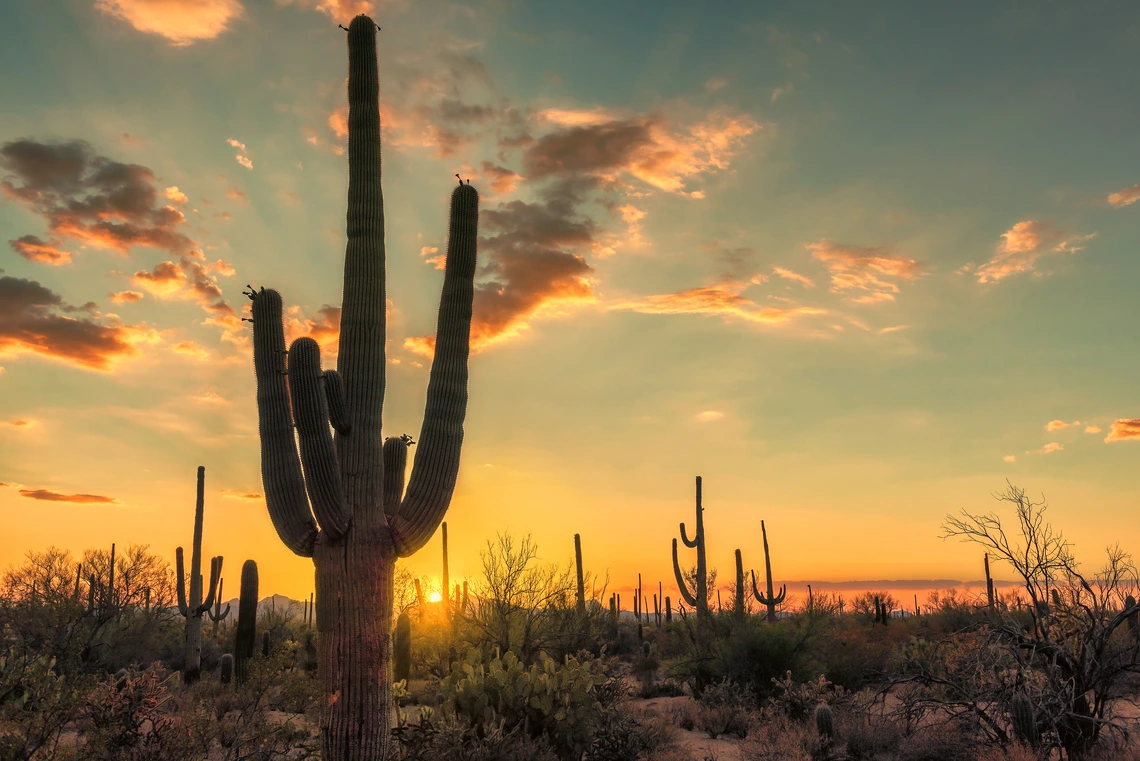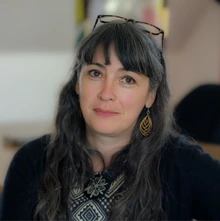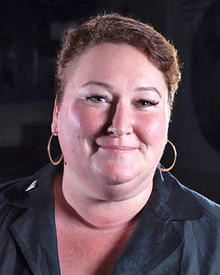Climate 2024: Why we aren't talking about climate change, and why that matters

The 2024 Election has brought many different issues to the forefront of the national spotlight, from reproductive rights to economic policy. However, one topic that has notably been sidelined in the political conversation has been climate change, even in the face of two devastating hurricanes slamming the Southeast U.S. in the height of the campaign season.
In this Q&A, two University of Arizona faculty members help put this election into the broader context of climate change and its impacts throughout the U.S. and around the world.
Seánna Howard is an associate clinical professor in the Indigenous Peoples Law & Policy Program, director of the International Human Rights Advocacy Workshop, and external advisor to the United Nations Special Rapporteur on the rights of Indigenous Peoples.
Joellen Russell is head of the Department of Geosciences, the Thomas R. Brown Distinguished Chair of Integrative Science, and a University Distinguished Professor.
Are you surprised by the lack of focus on climate change and climate policy in the election discourse this year? Why or why not?

Seánna Howard:
Yes and no. If the electoral candidates want to appeal to youth voters, they really should pay more attention to climate issues. At the same time, taking a position on climate policy can alienate the fossil fuel industry and other powerful lobbies.
With the American public’s fixation on the economy and employment numbers, the candidates could focus their campaigns on job growth in green energy industries.
For constituents, I think the lack of focus on climate action can be explained by concerns that many Americans are unable to meet their basic needs right now. Voters may view climate change as a problem to be dealt with in the future, especially if they have not been personally impacted by it, yet.
Big picture, why is climate change something people should care about?

Joellen Russell:
Here in Tucson, we had 112 days over 100°F this year, including the first 13 days of October. My daughter had sunstroke a few summers ago when I let her ride her bike after breakfast, so we switched to early morning only.
There are both economic reasons and health reasons that the further we let climate change progress, the more expensive it will be to adapt, and the more dangerous it will be for large segments of our society for significantly more days of the year.
Additionally, Helene and Milton in the same place only two weeks apart are another indication that over 93% of the energy associated with increasing greenhouse gasses is stored in the ocean. All of that ocean heat will continue to turn Cat 1's into Cat 4's or 5's much more often, just like it did to those two.
The good news is that the U.S. is down over 20% annually from its peak emissions (we dropped over 3% just last year), and our GDP continues to increase. I take great comfort in knowing that it has been the individual choices made by people to save money and burn less that has made all the difference.
Seánna Howard:
Climate change is causing floods, fires, drought, hurricanes, and other extreme weather events on a scale and frequency we have never seen before. The impacts will only become worse, and we will see more and more climate refugees fueling the global migration crisis.
We all have the right to a healthy environment as acknowledged by the United Nations General Assembly in 2022. However, it is the most vulnerable members of our society who will suffer the greatest impacts from climate change.
We must work on developing solutions to slow down global warming and devise adaptation strategies. When you consider the exponential rates of biodiversity loss and the increased likelihood of zoonotic diseases spreading, I am surprised people are not more concerned about climate change.
Who will be most impacted by the impacts of climate change, in the U.S. but also around the world?
Seánna Howard:
Indigenous Peoples around the world are the least responsible for climate change yet the most impacted by its devastating consequences. Their deep connection and close relationship to their lands make them increasingly vulnerable to climate change, a situation that is exacerbated when they are displaced from their territories.
Relocation often occurs to make way for conservation initiatives and extractive megaprojects, including for the green energy transition. States and private actors must respect Indigenous Peoples’ right to self-determination, right to be consulted, right to say no, and right to benefit from activities on their lands, including the direct financing of Indigenous-led climate projects.
Finally, Indigenous Peoples, especially women, hold critical knowledge transmitted across generations that can protect biodiversity, manage the risks and impacts of climate change, advance adaptation strategies and build community resilience.
How important will the next few years be for our ability to limit global warming and its impacts?
Seánna Howard:
According to current projections and models, the U.S. will not hit its emission reduction goals (NDCS) or the 1.5°C Paris target by 2030. With record high oil and gas production and the ongoing approval of new fossil fuel projects, domestically and abroad, the U.S. needs to drastically change its climate policy and be the world leader that it is.
Joellen Russell:
The next few years are critical. Our research shows that if emissions level off soon - just stop increasing - the atmosphere will quickly slow its rate of warming and the ocean will take up even more of the extra heat.
My new mantra is "Just don't burn it." What I mean by that is that anything we burn puts more carbon into the air, so we should just stop burning things. Right now, for every 100 tons of carbon dioxide we put into the atmosphere, about 50% will stay in the atmosphere for about 600 years as long as we, as a planet, keep burning more every year than the year before.
If you need energy for something (a car, a stove, a leaf or snow blower, etc.), use electricity instead of gas or oil. And encourage your local power company to switch to non-carbon sources like solar, wind, and nuclear. Or collect your own energy and store it in your house battery.
What role does the president of the United States play in shaping climate action at an international scale?
Seánna Howard:
The United States’ actions greatly influence other nations, for better or worse. When the Trump administration withdrew from the Paris Agreement, it sent a message to other countries that they could do the same. The effects of that decision were felt throughout the world, including a reduction of the Green Climate Fund, restrictions on climate change research, and setbacks in reaching the Paris Agreement targets. The U.S. must lead by example, as it did in 2022 by passing the Inflation Reduction Act. This could influence other actors, like the European Union that adopted the Green Deal Industrial Plan.
From your experience, what kinds of experiences, education, etc. are particularly powerful for motivating people to care about the climate?
Joellen Russell:
Often, climate change really hits home when you remember something that isn't there anymore. Ice skating in the old pond, but it doesn't freeze anymore; camping at a favorite mountain getaway - that was destroyed by a forest fire a few years ago; hanging out on the barrier islands - that aren't there anymore because sea level has risen and the sand got washed away by bigger waves; skiing down a glacier - that is now completely melted; snowy Christmases for most of the country.
I grew up in Kotzebue, AK, above the Arctic Circle, on the Chukchi Sea, which is actually part of the Arctic Ocean. I grew up with dog sleds, and hunting, and it was beautiful. It is changing and changing dramatically. When I lived there, we could only get a barge in every once in a while, usually only once a year, and now it’s just open. Now they can do it almost all the time. Kotzebue will never be the same.
My own lived experience animates my teaching, my classes, and my will to do everything I can to bend the curve. My biggest fear is that my future granddaughter will say, "Grandma, why didn't you do more about climate change when something could have been done?"
We can do it. We must do it. And we should start today, because it will be harder tomorrow.
